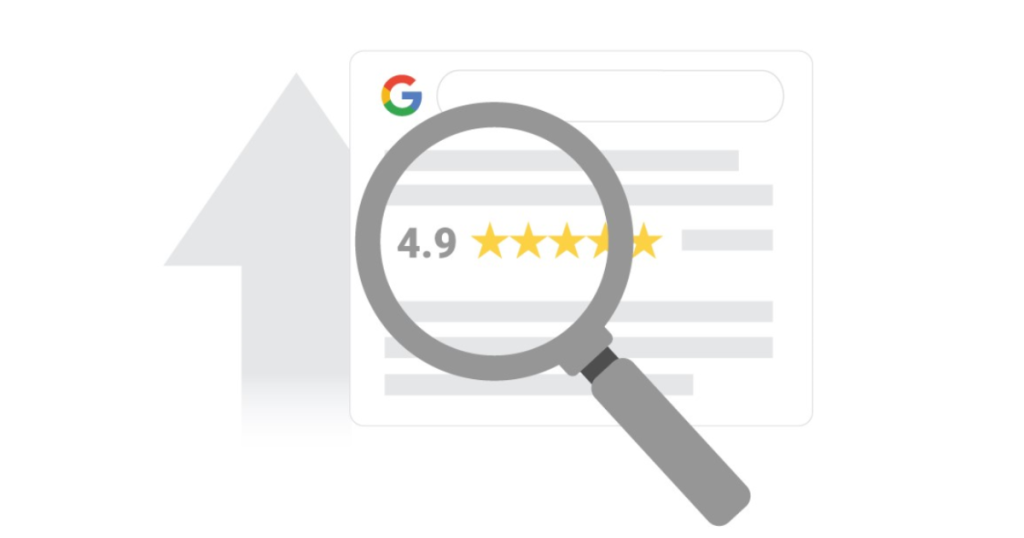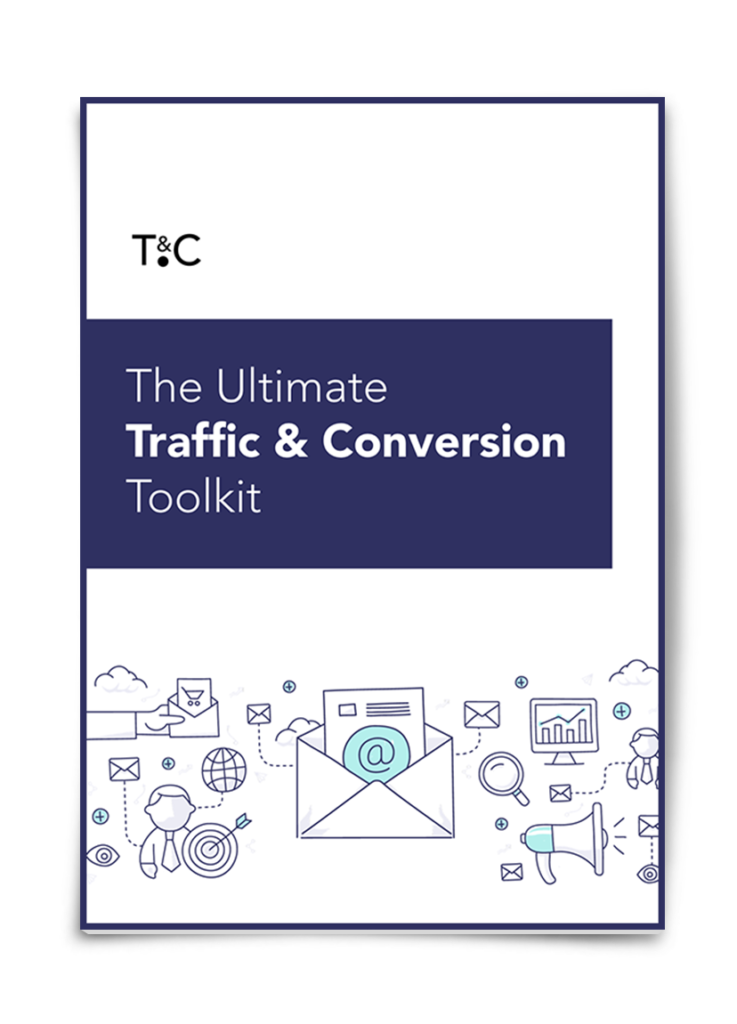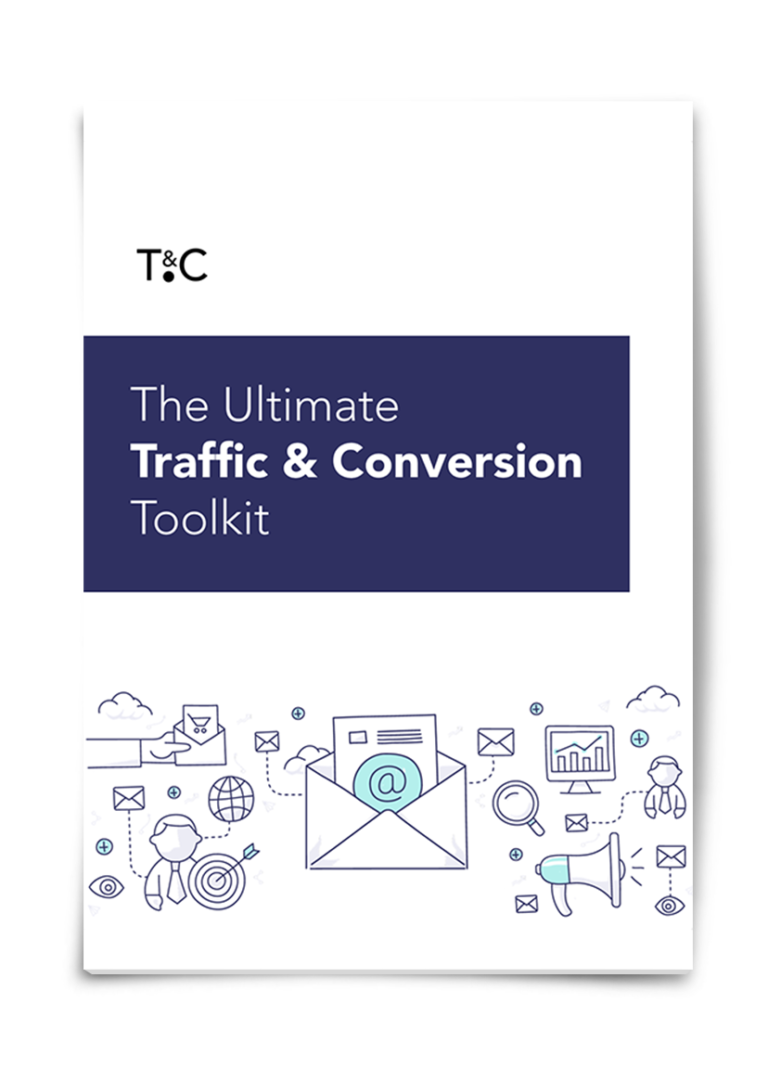By DJ Sprague and Scott Brandley, Authors of Reputation King
Your reputation matters…From search to checkout.
When it comes to ecommerce success, your reputation is one of your most valuable assets and a key indicator of your future sales. And by this, we mean your reputation as it appears in the paid and organic search results, and how it appears on your website.
Unfortunately, most ecommerce stores do not properly create or manage a positive online reputation…And it’s killing their traffic and sales.
As Steve Krug writes in his famous website design book Don’t Make Me Think: “Your first goal is to establish credibility and trust.” And this goes for your first goal both on your website and in the search results.
In many ways, it’s like a two-edged sword. Respect and nurture it and it can bring you incredible wealth and success.

But ignore or neglect it, and you can spiral downward, quickly destroying everything you’ve created.

Ultimately, there are 3 reputation problems most ecommerce companies face that, if left unresolved, can have significant consequences.
Problem 1: They Unknowingly Allow Bad Actors to Manage Their Reputation
With technology and social proof replacing traditional word-of-mouth, consumers rely heavily on your online reputation when deciding whether to buy from you.
In a perfect world, your online reputation would be a direct and honest reflection of your business, making it easy for customers to trust you.
But unfortunately, in the real world, this is not the case.
In the real world, your reputation is a commodity, and there are dozens of highly influential websites—from which hundreds of millions of consumers get advice—that are highly motivated to damage and even destroy your online reputation for their own financial gain.
Not only that but the larger and more successful your company becomes, the more these websites work against you.
And unfortunately, most businesses don’t realize the extent that these websites are actually hurting their reputation, and don’t know how to fight back even if they do; so they often find themselves feeling incredibly frustrated. In their minds, they’ve invested years of hard work and effort and have poured their hearts and souls into building and running a good, honest company. They just don’t understand how they can have a bad reputation when they’ve tried so hard to do things right.
And, because everything online is so visible and public, a bad reputation, if unremedied, can lead to a variety of unexpected challenges and business problems, including:
- Lower customer loyalty
- Higher pay-per-click (PPC) costs
- Lower click-through rates
- Lower organic search results
- Lower website conversion rates
- Lower average order value (AOV)
- High customer acquisition costs (CAC)
- Low customer lifetime value (LTV)
- Lower customer satisfaction
- Higher return rates, and
- Lower overall sales
And to add further insult to injury, a bad reputation can also have negative repercussions for investors and shareholders, along with lower market valuations and higher costs of capital.
Problem 2: They Don’t Know How to Fully Leverage Their Reputation in Search
Let’s talk about Google for a minute.
If you want to have a thriving business online, not only do you need a great reputation, but you also need to show up prominently in search results so that potential customers can find you.
The importance of search visibility is supported by the largest study on brand trust of its kind. A global survey of 16,000 adults found that “search engines rank as the single most trusted online source for consumers.”
In other words, consumers trust search engines to display the most trusted content and relevant answers to their questions at the top of the search results. And if Google doesn’t trust it, then neither do they.
It’s not surprising, then, that nearly 70% of all internet traffic goes to the top five organic listings on the first page of a Google search, with the number one listing getting over ten times more traffic than the number ten listing.3 This means that if you don’t show up on the top half of page one, you’ve lost before even getting started.
CTR breakdown based on ~4 million search results. Source: Backlinko
This is why, according to Marketing Sherpa, companies with an average of $1 million in revenue spend 81% of their marketing budget on SEO and PPC, and larger brands with $100 million in average revenue spend more than 39% of their entire marketing budget on SEO and PPC.
This amounts to investing anywhere from several thousand to several million dollars per month in organic (SEO) and paid (PPC) traffic strategies, depending on the size of the company, because ranking at the top of search is that important.
Think of it this way…The top search results for a question, solution, category, or product create top-of-mind awareness, familiarity, and trust at the moment of truth.
So, with so much time and money being dedicated to SEO and PPC, it begs the question, “How does your reputation impact the effectiveness of these efforts?” “Is it even worth investing time and money into SEO and PPC if you have a bad reputation?”
It’s an interesting dichotomy.
On the one hand, if you’re in this situation then you’re probably aware that you have a reputation problem that negatively impacts consumer trust; but on the other hand, you need more traffic and conversions for your business to survive, so what can you do?
It’s like trying to chop down a big tree with a blunt axe. You can do it, but it’s going to be painful and take a lot of additional time and effort. However, if you first sharpen your axe—or in this case, focus on improving your reputation—your hard work and effort are much more productive and profitable.
Fortunately, there are several highly effective, low-cost, and easy strategies that can greatly improve your online reputation while simultaneously amplifying and enhancing your SEO and PPC efforts. Even better, they will help you generate a significant amount of trust, authority, and additional traffic and sales.
We’re going to be sharing these strategies with you, but before we do that, there’s a third reputation problem that we need to address…
Problem 3: They Don’t Know How to Fully Leverage Their Reputation on Their Website
When managed properly, your reputation should naturally and seamlessly extend beyond the visitor’s search results and onto your site.
Unfortunately, this is something that many companies tend to overlook.
It’s very important to display specific types of reputation-based trust signals and content throughout your site in ways that naturally motivate and encourage visitors to move toward the checkout page.
The trick is knowing what to display, and where and how to display it to establish the trust necessary to convert as many of your visitors as possible into happy, paying customers.
As you can imagine, this is an ongoing process, requiring various aspects of behavioral design and psychology, along with continual experimentation and testing. But over the years, we’ve been able to research, assemble, and test several highly compelling trust signals that apply to virtually every ecommerce website in one way or another.
What You’ll Learn in the free Book Reputation King
Three ways Reputation King can help you improve your traffic and conversion:
- Learn how to take back control of your reputation and build an amazing online presence in the process.
- Learn how to leverage your reputation in Google and Bing to get the most brand visibility, authority, trust, and search traffic possible. And,
- Learn how you how to leverage your reputation on your website to generate higher conversion rates and more revenue.
If you implement the proven principles and concepts that we share in this book, your company will join the ranks of the Reputation Kings: successful business owners and executives who know how to improve, manage, and leverage their reputation to become the most trusted and profitable online brand in their industry.
Reputation King is a new book written to help the e-commerce executive understand the true power and multi-faceted benefits behind intentionally and strategically creating and managing a positive online reputation and search presence.
The strategies in the book connect the strategies between SEO (search engine optimization) and CRO (conversion rate optimization), which are normally two separate and distinct strategies and areas of expertise. By understanding how these two disciplines work together, and executing them as one integrated growth and brand management strategy, the ecommerce website realizes far greater success at a lower cost.
See us at booth #F19 to learn more, and get your free copy.
Click here to receive a free copy of the book Reputation King.
For more awesome, tried and proven, actionable content and specific tools and tactics check out Traffic & Conversion Summit where you can hear from the world’s leading experts on all things Tools & Tactics. Traffic & Conversion Summit is the BIGGEST digital marketing event in the US for entrepreneurs and agency owners. Check it out here!






